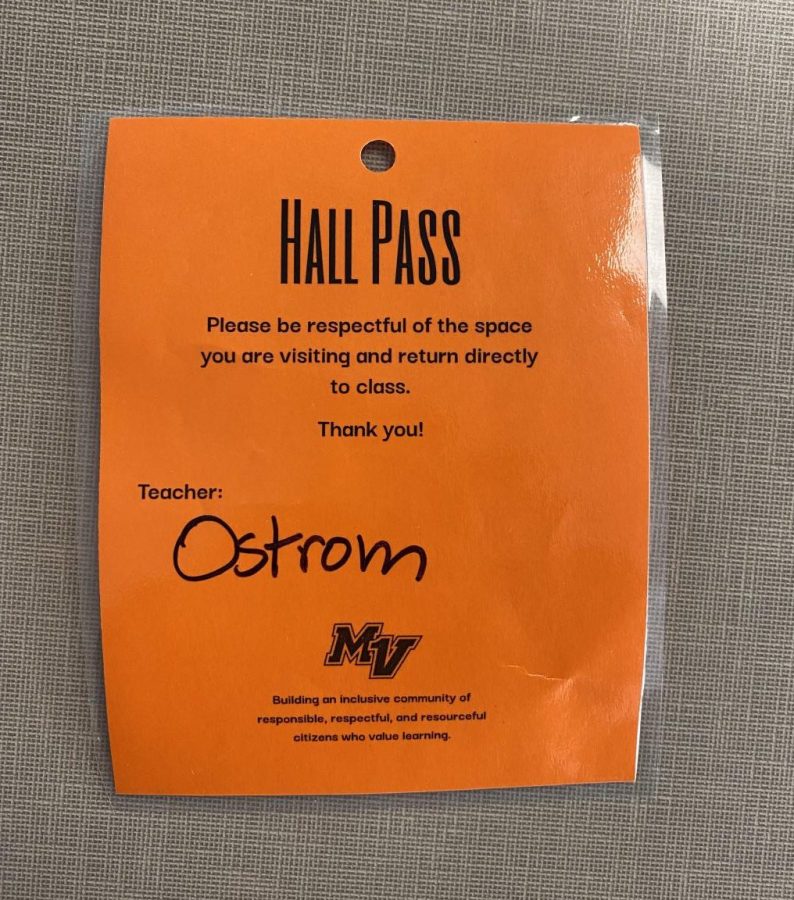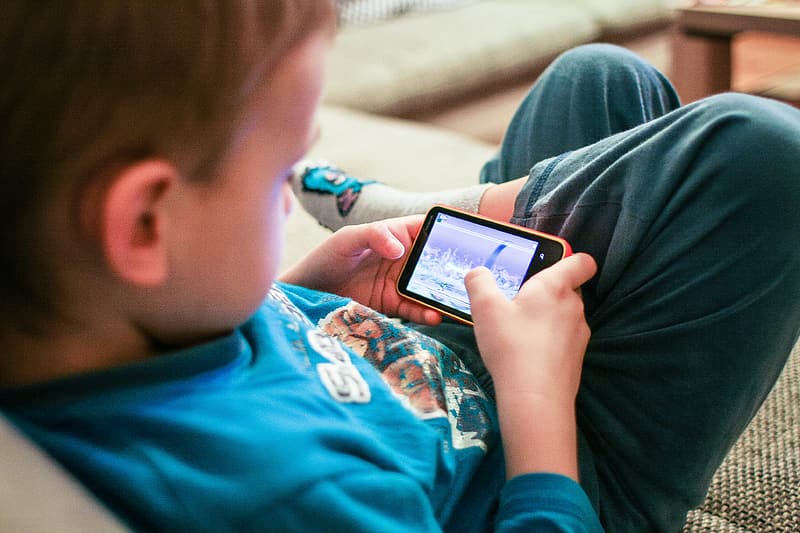How do teachers manage their kids’ social media usage?
April 21, 2020
The way teachers live outside of the classroom has always been a mystery to students. Students may wonder how their parents’ views on topics like social media use compares to that of their teachers. For many teachers, managing their children’s social media and technology use is a constant struggle and some believe that social media can have negative effects on growth and prevent building a positive family dynamic. Others believe that social media is a positive outlet, and they trust their children to use it responsibly.
Different households have different rules; however, for social studies teacher Jonathan Nuss, his family rules are straightforward. “It’s pretty simple, we don’t allow them to have it,” Nuss said. “I just don’t think that young kids need to be on social media.” He explained that his children, ages 9 and 12, do not have any social media apps and even his middle school-aged daughter’s cell phone can only make and receive texts. Nuss hopes that limiting social media use will provide long-term benefits like protecting mental health and preventing harassment and bullying online. “I think it protects them from material that they are not mature enough for,” Nuss said. He also hopes that it will help his children see the negative effects of social media before they get fully immersed in the constantly changing world of the internet.
Not only can social media personally affect children, but some also believe it can affect how they interact with others and how they build their relationships. Nuss believes that children today are missing out on face-to-face conversations and making important connections. “I think kids miss out on the ability to just be present in a situation; there’s always that temptation to just get someplace else, to find an escape,” Nuss said.
On the other hand, social studies teacher Scott Oberg does not believe his kids are missing out on important social skills. “As parents, we’ve made a concerted effort to teach and model social skills and provide our kids with ample opportunities to practice social skills,” Oberg said. He also believes that parents should be responsible for modeling and teaching their kids appropriate cell phone and social media use so that they know how to act responsibly with those devices.
In the end, it comes down to trust and whether or not parents believe that their kids can handle social media and technology. “Our approach as parents has been to allow our kids to have and use social media within the boundaries established by us,” Oberg said. “If our kids venture outside of those boundaries then we step in as parents to redirect. Essentially, we’ll trust our kids until they give us a reason not to.” Oftentimes, it can be difficult for parents to trust that their children will behave appropriately on the internet, but it all depends on the family and how they choose to manage it.
Depending on their family rules, all children will have a different experience with social media and cell phone use. Comment below your family’s policy on social media and cell phone use.















![[DEBATES] Prestigious colleges: value or hype?](https://www.mvviewer.org/wp-content/uploads/2024/12/buildings-1200x654.png)



































![[OPINION] The dark origins of TikTok's looksmaxxing trend](https://www.mvviewer.org/wp-content/uploads/2024/02/Copy-of-Copy-of-Untitled-Design-1200x675.png)










![[DEBATES] Prestigious colleges: value or hype?](https://www.mvviewer.org/wp-content/uploads/2024/12/buildings-600x327.png)




